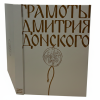 Ferdinand Marcos Jr., the president of the Philippines, asserted his country's claims in the disputed South China Sea, taking sharp shots at Beijing during a speech in Singapore on Friday Photo: Ore Huiying/Bloomberg
Ferdinand Marcos Jr., the president of the Philippines, asserted his country's claims in the disputed South China Sea, taking sharp shots at Beijing during a speech in Singapore on Friday Photo: Ore Huiying/Bloomberg
If a Filipino citizen were killed in a clash with the Chinese coast guard, it would be very much like war, the Philippine president warned.< /p>
At the opening of the defense summit “ Shangri-La Dialogue» in Singapore Ferdinand Marcos, President of the Philippines, was asked whether China would cross a «red line» if one of its coast guard ships killed a Filipino during a confrontation: he replied «almost certainly.»
Clashes between Philippine and Chinese coast guard vessels in the disputed South China Sea have intensified over the past year as Beijing strengthens its claims to shoals and reefs in waters that Manila says are legally within its 200-mile exclusive economic zone.< /p>< p>Chinese ships have stepped up so-called “gray zone” activities, including shadowing, confronting, harassing and swarming Philippine supply ships and patrol vessels, and using powerful water cannons to block their passage.
Close to an Act of War
“If a Filipino citizen is killed as a result of a deliberate act, it is very close to what we define as an act of war, and therefore we will respond accordingly, and our treaty partners, I believe, also adhere to that same standard,” he said. . “We would have crossed the Rubicon.”
Mr. Marcos's statement came just hours after the defense chiefs of the United States and China exchanged their first handshake at Asia's top security summit, a symbolic gesture that many hope will reduce the risk of conflict in many Indo-Pacific hotspots. region.
The annual summit, which brings together hundreds of senior defense and intelligence officials each June for high-level talks, has grown into a showcase of diplomatic and military relations between Washington and Beijing since its launch more than 20 years ago.
Lloyd Austin, the US defense secretary, met for the first time with Admiral Dong Jun, his Chinese counterpart, just days after Beijing raised alarms with military exercises to «punish» suspected separatists and encircle democratic Taiwan, testing its ability to take over there. power.
Few believe the meeting will change the course of a potential conflict, but the fact that it even happened was progress for rival superpowers as they try to restore military communications channels that have broken down as ties deteriorate in 2022.
 Dong Jun (center), China's defense minister, walks into a Shangri-La Dialogue meeting in Singapore Photo: REUTERS/Edgar Su
Dong Jun (center), China's defense minister, walks into a Shangri-La Dialogue meeting in Singapore Photo: REUTERS/Edgar Su
Last year, Austin was snubbed by Dong's predecessor Li Shangfu. This year, however, he had a 75-minute face-to-face conversation that Senior Colonel Wu Qian, a Chinese army spokesman, called «positive, practical and constructive.»
The countries «agreed that stable relations military-to-military relations between the US and China are important,” Colonel Wu said, despite confrontations with each other over contentious issues such as Taiwan and the South China Sea.
“The Secretary of State expressed concern about the PLA's recent provocative activities around the Taiwan Strait and reiterated that the PRC should not use the political transition in Taiwan—part of the normal, routine democratic process—as a pretext for coercive action,” Air Force Maj. Gen. Patrick Patrick said afterward. meeting.
In his speech, Mr. Austin sought to allay concerns that the wars in Ukraine and Gaza have distracted attention from the Indo-Pacific region.
“Despite these historic clashes in Europe and the Middle East, the Indo-Pacific remains our priority theater of war,” he said. “Let me be clear: The United States can only be secure if Asia is secure.”
It is the escalation of tensions in the South China Sea that will receive the most attention this weekend and that many believe has the highest likelihood of escalating into conflict (even accidentally) in the near future.
“Filipinos are not giving up”
On Friday evening, Mr. Marcos delivered a closely watched keynote address that, as expected, underscored his country's determination to defend its sovereignty in the face of China's aggressive territorial claims to maritime features off the Philippine coast.
Addressing senior defense officials from more than 40 countries, including Mr. Austin and Mr. Dong, he condemned what he called «illegal, coercive, aggressive and deceptive actions» being taken in the disputed South. The China Sea is a clear censure of Beijing without explicitly naming it.< /p>
Such actions «continue to violate our sovereignty, sovereign rights and jurisdiction,» he said, adding: «The Philippines is not conceding.»
But he also had strong words for treaty ally the United States, stressing that competition between Washington and Beijing is destabilizing the Indo-Pacific region.
“Their rivalry limits the strategic choices of regional states. Their rivalry is exacerbating conflicts and creating new security dilemmas,” he said, calling on both countries to better manage their relationship.
Mr. Marcos has strengthened the Philippines' security relationship with Washington and taken a tougher stance on China since taking office.
Manila and Beijing have clashed frequently over disputed reefs and atolls in recent months , and other features of the South China Sea.
Many of the tense skirmishes took place near Scarborough Shoal, a rich fishing area in the Philippines' exclusive economic zone (EEZ), and Second Thomas Shoal, where the grounded and rusting warship Sierra Madre serves as the Philippine Navy's navy. a military outpost designed to assert Manila's claims.
This week, Mr Marcos called «alarming» new rules for China's coast guard that give it the power to detain foreigners accused of trespassing , which Beijing claims.
China, however, argues that the Philippines is deliberately fomenting discord.
Beijing asserts historic rights to much of the resource-rich South China Sea, which not only contains abundant fossil fuel deposits but also today supports annual maritime trade worth about 3.4 trillion dollars.
An international tribunal in The Hague in 2016 rejected China's claims as having no legal basis, but China has rejected the ruling and has continued to militarize islands and atolls, denying access to disputed waters to rival Southeast Asian claimants.
Risk of major conflict< Increasing skirmishes between Philippine and Chinese vessels in the South China Sea could trigger a major conflict “at any moment,” warned Jose Manuel Romualdez, the Philippine ambassador to the United States, in an interview with Nikkei late last year.
Many foreign policy experts agree that this disputed waterway is currently more ripe for a clash than the Taiwan Strait.
“For a while I thought the most dangerous flashpoint in the Indo-Pacific region in the short term is the Second Thomas Shoal, not Taiwan,” said Bonnie Glaser, managing director of the Indo-Pacific Program of the German Marshall Fund in the United States.
“I also expect the United States and other like-minded countries will support [Mr. Marcos'] messages about the rule of law and the need for peaceful resolution of disputes.»
 The Philippine Coast Guard has deployed additional resources in various Philippine territorial waters, including the disputed South China Sea. Photo: EPA-EFE/Shutterstock/FRANCIS R MALASIG
The Philippine Coast Guard has deployed additional resources in various Philippine territorial waters, including the disputed South China Sea. Photo: EPA-EFE/Shutterstock/FRANCIS R MALASIG
The stakes are high for Washington, which is obliged to respond to any military attack on the Philippines under the 1951 Mutual Defense Treaty (MDT).
But the Cold War-era agreement did not address the types of coercive gray zone tactics Beijing uses to change the status quo without resorting to lethal force, and the Biden administration has not fully explained what types of Chinese behavior might trigger a U.S. response.
In April, Mr. Marcos made it clear that the death of any Filipino military personnel due to “an attack or aggressive action by another foreign power” in the South China Sea would be enough for the treaty to enter into force.
Such a scenario could have dire consequences, Philippine Coast Guard spokesman Commodore Jay Tarriela told The Telegraph last month.
“I'm very sad to say, but there will be a war and MDT will resort to involving the United States in this kinetic conflict » he said.
But military analysts such as Dr Colleen Koh, a senior fellow at Singapore's S. Rajaratnam School of International Studies, argue that the reasons and nature of possible US intervention in such circumstances are much less clear .
it would likely be in the interests of the US, China and the Philippines for the MDT to remain strategically ambiguous,” he said.
Strategic ambiguity
Although there was a risk of “unintended or accidental” clashes, Beijing would likely do so. retreat from the real conflict in the South China Sea, he said.
“I believe China will likely continue to focus on Taiwan and will not allow other regional hotspots to distract attention,” Dr. -r Co.
Lloyd Austin and Dong Jun are expected to perform during their performances. This weekend they will outline their countries' tough positions on the future of Taiwan, the South China Sea and repeated territorial standoffs between Beijing and Tokyo over the disputed Senkaku Islands.
Chinese coast guard ships were spotted. in the waters around a chain of uninhabited islands controlled by Japan for a record 158 consecutive days, Tokyo said on Monday.
An incident there could again raise the possibility of regional conflict, since the US also has a mutual defense treaty with Japan.
Behind the scenes in Singapore, defense chiefs and other regional leaders will have a chance to draw finer red lines and create mechanisms for de-escalating crises.
One possibility could be a new communications channel between the heads of the Indo-Pacific Command The United States and China's Eastern Theater Command are the two officers who would lead military operations in the event of a war over Taiwan, writes Foreign Policy columnist James Crabtree.
“A military-to-military meeting between the two countries is unlikely.” will lead to a diplomatic breakthrough. But the fact that this can happen at all is a welcome development, and, given recent years of frosty silence, somewhat surprising.”























































Свежие комментарии